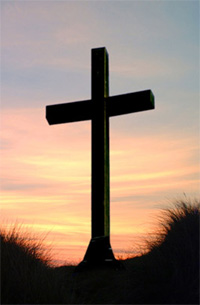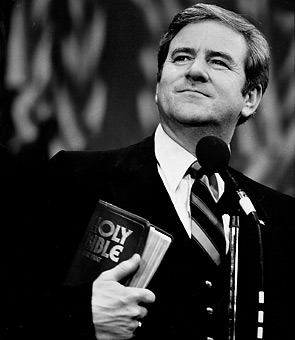society not unlike the Puritannical New England of the seventeenth-century British colonies. Margaret Atwood claims that she conceptualized Gilead as a society similar to Puritannical New England, but reinforced with the modern-day fervor of the Christian right: people who deviate from fundamentally Christian lifestyles are hung in public ceremonies, and televangelists encourage women to be docile and domestic. Many of the government-sanctioned traditions in Gilead are exaggerations, parodies or literal interpretations of Old Testament stories and prayers.
The Ceremony, the ritual in which a Handmaid must lie face-up on her Commander's wife and grasp the wife's hands while the Commander has sex with her, and the Birthing Ceremony, where the wife feigns labor while the Handmaid gives birth, are direct references to the Genesis story of Rachel and Bilhah.
" And when Rachel saw that she bare Jacob no children, Rachel envied her sister; and said unto Jacob, Give me children, or else I die.
And Jacob's anger was kindled against Rachel: and he said, Am I in God's stead, who hath withheld from thee the fruit of the womb?
And she said, Behold my maid Bilhah, go in unto her; and she shall bear upon my knees that I may also have children by her.
And she gave him Bilhah her handmaid to wife: and Jacob went in unto her.
And Bilhah conceived, and bare Jacob a son. " Genesis 30:1-5
This story is read to the women by the Commander immediately before the Ceremony. Also, we learn through Offred that the actual name of the Red Center, where Handmaids are trained, is the Rachel and Leah Center.
Small, obscure reminders of Bible stories turn up throughout the novel. All the societal classes are based on Biblical tales. For example, Marthas derive their title from the frustrated, housekeeping sister whom Jesus admonishes in one Gospel story.
Gilead and the Moral Majority of the 1980s
While Margaret Atwood was writing The Handmaid's Tale, Ronald Reagan ruled the White House and the Christian right was on the rise throughout America. This conservative phenomenon, which evangelical personality Jerry Falwell dubbed the Moral Majority, generally opposed such personal freedoms an individual's right to practice homosexuality or a woman's decision to pursue a career rather than a family and life at home. In The Handmaid's Tale, Atwood exaggerates and projects these extremely conservative values and combines them with the Puritannical ethos of Gilead in order to create a more believable, immediately approaching society. In general, the actions carried out in Gilead--such as hangings and manners of dress--are inspired by the Puritannical colonies, whereas the crimes for which people are being punished--homosexuality, performing abortions--are inspired by the opinions of the Moral Majority.
|

